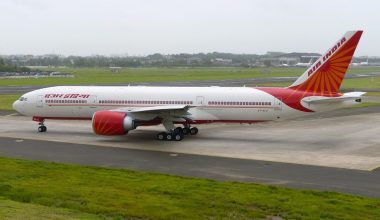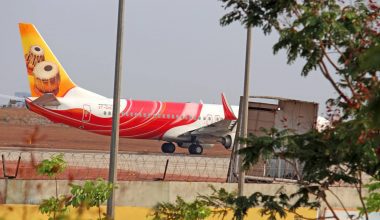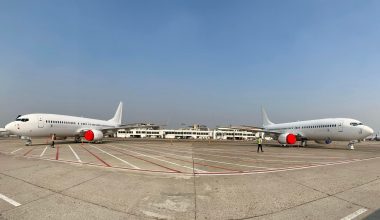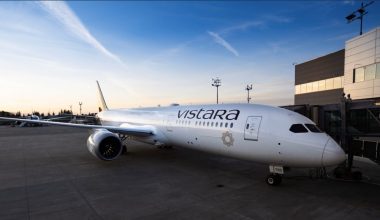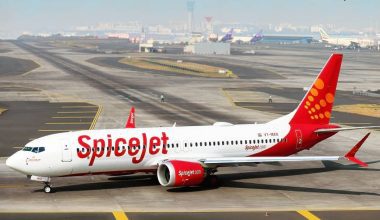Akasa Air is one of the new entrants in the faltering Indian aviation market to make a promising initiative in the airline sector. Akasa Air is an upcoming ultra-low-cost carrier in India planning to launch its flight operations by the end of this year or the start of 2022. It is on its way to compete against giant competitors in the face of the COVID-19 pandemic. As glamorous as it looks, running an airline is not everyone’s cup of tea; in some circumstances, it can turn billionaires into millionaires.

Rakesh Jhunjhunwala, a.k.a Big Bull, will invest 40% in the Indian startup airline Akasa Airlines. India’s Warren Buffett would own a 40% share of the carrier supported by a strong team of aviation veterans. The team comprises the former senior executive of Delta Air Lines Inc. As we all know, Delta is a key player in the domestic American market with a large market share. Similarly, Vinay Dube, the former CEO of Jet Airways, and Aditya Ghosh, former CEO of IndiGo airlines, make Akasa a big hit in the coming days. In the face of intense fare war and high cost, Akasa Airline anticipates grabbing the market share in once the world’s fastest-growing aviation market through affordable fares to the general public.
The airline was reported to have got its No Objection Certificate (NOC) from the Civil Aviation Ministry and the Directorate General of Civil Aviation (DGCA) on August 4 but was later told to be only a rumor. It is underway to get all central clearances to start the flight operations as it had already applied for NoC and other permits. Once all these approvals are sorted out, the airline is likely to commence flight operations by 2021 with five aircraft at the initial phase. It is estimated to be based out of Bengaluru and provide an air route network close to cities like Mumbai, Chennai, Hyderabad, etc. SNV Aviation will be the holding company of Akasa Air.
Ace Investor Rakesh Jhunjhunwala is bidding big on the country’s airline sector and anticipating starting Akasa Airlines under a suitable environment (certificates and approvals). As per Economic Times, the initial investment of $33.3 million was made by a legendary Indian investor at the end of June. Funding is being released phase-wise to take the airline’s stake of 40% to Jhunjhunwala’s account.
The bold move by India’s billionaire is set to create an opportunity that woos flyers with ultra-low fares. In terms of demand, he is very confident about rebounding passenger traffic in the coming years. The worldwide travel downturn has ravaged the Indian aviation sector. Yet the startup Akasa Air is set to start flying on the skies of India in 2022 at the latest.
The fleet of Akasa Air
Akasa Air is in discussion with aircraft manufacturing companies regarding fleet composition. Jhunjhunwala has anticipated starting this new airline within the next four years using a fleet of 70 aircraft. He is also searching for aircraft having a seating capacity of at least 180 passengers. Akasa Air is likely to opt for narrow-body Boeing airplanes and may lease few MAX aircraft. The environment created by COVID-19 has stimulated the lower lease rentals that can favor Akasa Air in terms of lower expenses. Once the fleet acquisition is finalized and sufficient personnel, resources, systems are kept in place, it can apply for AOC.

The fleet acquisition is one of the toughest and expensive works in parts of launching an airline. Early aircraft deals and suitable manufacturers are critical to airlines’ benefit in upcoming years. According to the reports, the airline has already decided to order 70 to 100 Max 8s, soon to be publicly announced. It is also reported that Boeing’s Director Commercial Sales, James McBride secured Akasa’s aircraft deal by arriving in Mumbai amid the pandemic.
Indian aviation scenario
India’s airline industry has reported a loss of $8 billion over two years due to a pandemic due to lockouts, border restrictions, and halting of flight operations. The number of travelers is still far from the pre-pandemic level. There’s a looking risk of the third wave of Coronavirus variant. Vistara, the airline of India, has planned to delay the delivery of aircraft from Boeing and Airbus and change the pay time timetables. IndiGo also went through the darkest and longest crisis, reporting a heavy loss as pandemic lockdown crimped the revenue. The airline couldn’t adapt to the original planning of increasing the air market share.
Risk factors in aviation
The aviation industry is vulnerable to volatile crude oil prices and high debt as aircraft prices are very high. The foreign exchange rate often fluctuates, which affects the pricing of airline tickets. The changes in the macro-environment also pose a threat to airline operations.
Also Read: Air India to resume flights back with Singapore:
Against all the odds, if Akasa Air can succeed in such a tight margin aviation market? The huge betting from Jhunjhunwala has helped the proposed airline get public attention and reel in more investors in Akasa Air’s portfolio in the coming months. It’s not the first time Rakesh Jhunjhunwala has bid on business. As the second wave of a pandemic is abating slowly, people are likely to pick up interest in flying again. A long journey can suffocate, so there’s a shift in consumer behavior to fly instead of catching a train or bus.
Opportunities for Akasa Air to get market in Indian aviation
1. Backed by India’s Warren Buffett
On the road to an ambitious target to lead Indian aviation, this mega-investment of Rajesh Jhunjhunwala will surely attract the public eyes after the rough patch of coronavirus waves hitting the industry. Jhunjhunwala’s foray into the airline business is much anticipated by the public as well as industry experts. Albeit the third wave of the pandemic, he is optimistic about the country evading another devastating round of coronavirus as vaccination exercises are picking up pace and expansion of immunization drive
2. Low-cost model
Indian people love flying at affordable fares. Given the ultra-low-cost fare of Akasa, people will opt to travel on this airline.
3. Development of regional routes
UDAN scheme of the Government of India and the rapid development of regional routes to make flying accessible to all people can help Akasa Air tap into such air traffic. Akasa needs to choose air routes wisely to ensure it can make a presence in the nation’s regional connectivity.
4. Pandemic as an opportunity
COVID-19 pandemic is an opportunity to run a new airline as it can get aircraft on lease at low prices. Akasa Air is seeking the aviation ministry’s approval regarding finance sale and leaseback deals. The startup can receive cash from leasing companies as it takes possession of the aircraft. Once Akasa gets regulatory approvals to officially commence the airline business, it can make further plans.
5. Strong airline team
Indian billionaire, together with a former senior executive of Delta Air Lines, former CEO of Jet Airways, former CEO of IndiGo airlines, and other industry professionals, will make a strong airline team compete against.
Akasa Air also has the chance to be an airline of the firsts in cases such as
• First India’s ultra-low-cost carrier, albeit the claim of a new brand of GoAir to be so.
• First airline to be cofounded by billionaire stock market investors. Jhunjhunwala’s net worth and business acumen, and expertise will critically affect the airline’s commencement and success.
Tough times for Akasa’s journey
Investing in airlines amid shrinking airline revenue can be matched with playing with fire. The inflow of money and low-cost is not enough to guarantee Akasa’s success in the razor-thin industry. Indian airlines are struggling to secure market shares and routes. So, a little profit margin may be left for newcomers in this competitive environment.
As slight fluctuation can turn the whole industry upside down, Akasa’s target should be cost-efficiency to survive in the market where IndiGo, SpiceJet, and the rest are already pro players. As an ultra-low-cost carrier, Akasa will be in the race with other budget carriers such as IndiGo, SpiceJet, Go First, and Air Asia, etc.
Cost efficiency
The low fares are not only obtained by low ticket prices. Lower structural costs also determine the viability of the ultra-low-cost model, including funding cost, distribution cost, demand dynamics, etc. The use of a secondary airport is also a measure to cost-cut landing fees. Driving the air passenger volume with good seat occupancy is required to operate the ULCC model.
What to expect in ULCC?
In the ULCC model, services are unbundled. For each added service, you have to pay extra money. This model operates with minimal cost to ensure profitability and operations costs are lower than typical budget carriers.
As Akasa Air looks to aggressively pursue market share, governmental rules regarding fare restriction will also determine its fares. With all central clearances to commence airline operations by the year-end, it can surely challenge the highly competitive aviation market.
The coming days will show whether the move made by India’s Warren Buffet’s Akasa Air’s entry at a time when the COVID pandemic ransacks the industry proves to be smart or devastating. Akasa Air is an ambitious bet and an important symbol to be the next huge disrupter in the post-pandemic aviation industry.


